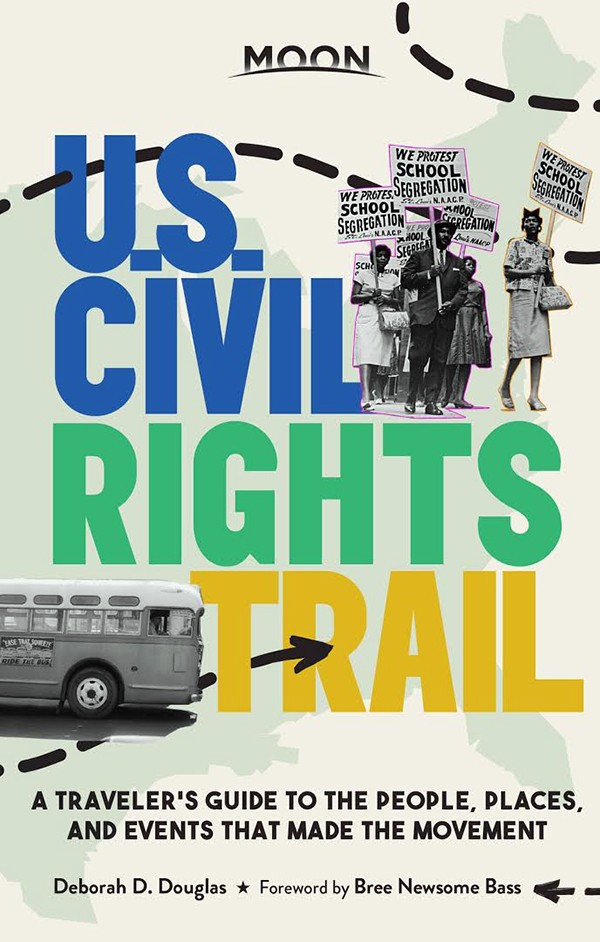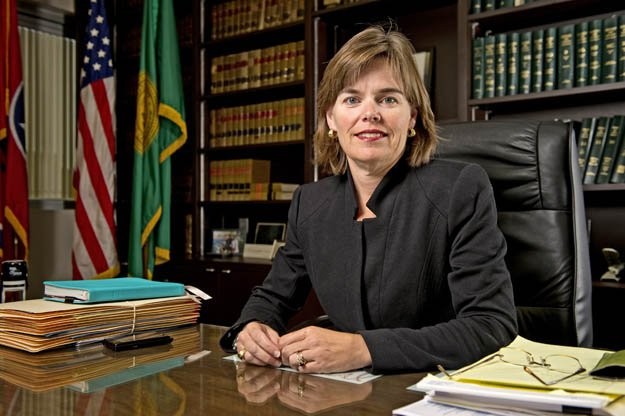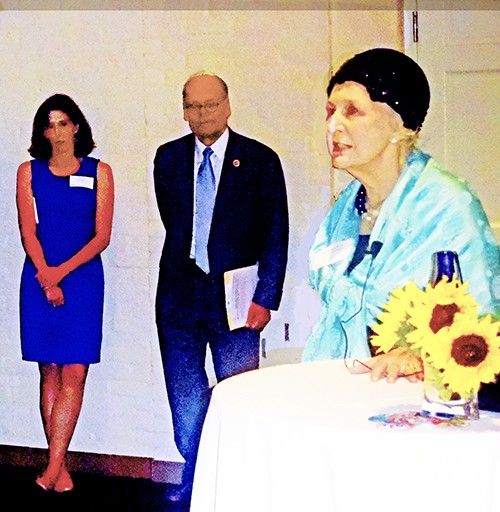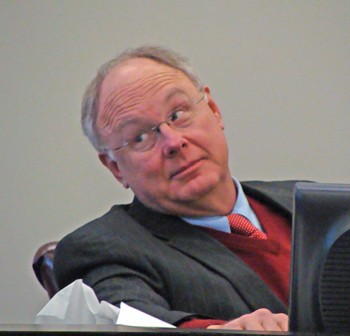If 2020 was the year of despair, 2021 appears to be the year of hope.
Wanna see what that could look like? Cast your gaze to Wuhan, China, birthplace of COVID-19.
News footage from Business Insider shows hundreds of carefree young people gathered in a massive swimming pool, dancing and splashing at a rock concert. They are effortlessly close together and there’s not a mask in sight. Bars and restaurants are packed with maskless revelers. Night markets are jammed. Business owners smile, remember the bleak times, and say the worst is behind them. How far behind? There’s already a COVID-19 museum in Wuhan.
That could be Memphis (once again) one day. But that day is still likely months off. Vaccines arrived here in mid-December. Early doses rightfully went to frontline healthcare workers. Doses for the masses won’t likely come until April or May, according to health experts.
While we still cannot predict exactly “what” Memphians will be (can be?) doing next year, we can tell you “where” they might be doing it. New places will open their doors next year, and Memphis is set for some pretty big upgrades.
But it doesn’t stop there. “Memphis has momentum” was Memphis Mayor Jim Strickland’s catchphrase as he won a second term for the office last October. It did. New building projects bloomed like the Agricenter’s sunflowers. And it still does. Believe it or not, not even COVID-19 could douse developers’ multi-million-dollar optimism on the city.
Here are few big projects slated to open in 2021:
Renasant Convention Center
Throughout 2020, crews have been hard at work inside and outside the building once called the Cook Convention Center.
City officials and Memphis Tourism broke ground on a $200-million renovation project for the building in January 2020. The project will bring natural light and color to the once dark and drab convention center built in 1974. The first events are planned for the Renasant Convention Center in the new year.

Memphis International Airport
Memphis International Airport
Expect the ribbon to be cut on Memphis International Airport’s $245-million concourse modernization project in 2021. The project was launched in 2014 in an effort to upgrade the airport’s concourse to modern standards and to right-size the space after Delta de-hubbed the airport.
Once finished, all gates, restaurants, shops, and more will be located in a single concourse. The space will have higher ceilings, more natural light, wider corridors, moving walkways, children’s play areas, a stage for live music, and more.
Collage Dance Collective
The beautiful new building on the corner of Tillman and Sam Cooper is set to open next year in an $11-million move for the Collage Dance Collective.
The 22,000-square-foot performing arts school will feature five studios, office space, a dressing room, a study lounge, 70 parking spaces, and a physical therapy area.

The Memphian Hotel
The Memphian Hotel
A Facebook post by The Memphian Hotel reads, “Who is ready for 2021?” The hotel is, apparently. Developers told the Daily Memphian recently that the 106-room, $24-million hotel is slated to open in April.
“Walking the line between offbeat and elevated, The Memphian will give guests a genuine taste of Midtown’s unconventional personality, truly capturing the free spirit of the storied art district in which the property sits,” reads a news release.
Watch for work to begin next year on big projects in Cooper-Young, the Snuff District, Liberty Park, Tom Lee Park, and The Walk. — Toby Sells
Book ‘Em
After the Spanish flu epidemic and World War I came a flood of convention-defying fiction as authors wrestled with the trauma they had lived through. E.M. Forster confronted colonialism and rigid gender norms in A Passage to India. Virginia Woolf published Mrs. Dalloway. James Joyce gave readers Ulysses. Langston Hughes’ first collection, The Weary Blues, was released.
It’s too early to tell what authors and poets will make of 2020, a year in which America failed to contain the coronavirus. This reader, though, is eager to see what comes.

Though I’ve been a bit too nervous to look very far into 2021 (I don’t want to jinx it, you know?), there are a few books already on my to-read list. First up, I’m excited for MLK50 founding managing editor Deborah Douglas’ U.S. Civil Rights Trail, due in January. Douglas lives in Chicago now, but there’s sure to be some Memphis in that tome.
Next, Ed Tarkington’s The Fortunate Ones, also due in January, examines privilege and corruption on Nashville’s Capitol Hill. Early reviews have compared Tarkington to a young Pat Conroy. For anyone disappointed in Tennessee’s response to any of this year’s crises, The Fortunate Ones is not to be missed.
Most exciting, perhaps, is the forthcoming Black Panther: Tales of Wakanda prose anthology, expected February 2nd. The anthology is edited by Memphis-born journalist Jesse J. Holland, and also features a story by him, as well as Memphians Sheree Renée Thomas, Troy L. Wiggins, and Danian Darrell Jerry.
“To be in pages with so many Memphis writers just feels wonderful,” Thomas told me when I called her to chat about the good news. “It’s a little surreal, but it’s fun,” Jerry adds, explaining that he’s been a Marvel comics fan since childhood. “I get to mix some of those childhood imaginings with some of the skills I’ve worked to acquire over the years.”
Though these books give just a glimpse at the literary landscape of the coming year, if they’re any indication of what’s to come, then, if nothing else, Memphians will have more great stories to look forward to. — Jesse Davis
 Courtesy Memphis Redbirds
Courtesy Memphis Redbirds
AutoZone Park
Take Me Out With the Crowd
Near the end of my father’s life, we attended a Redbirds game together at AutoZone Park. A few innings into the game, Dad turned to me and said, “I like seeing you at a ballpark. I can tell your worries ease.”
Then along came 2020, the first year in at least four decades that I didn’t either play in a baseball game or watch one live, at a ballpark, peanuts and Cracker Jack a soft toss away. The pandemic damaged most sports over the last 12 months, but it all but killed minor-league baseball, the small-business version of our national pastime, one that can’t lean on television and sponsorship revenue to offset the loss of ticket-buying fans on game day. AutoZone Park going a year without baseball is the saddest absence I’ve felt in Memphis culture since moving to this remarkable town in 1991. And I’m hoping today — still 2020, dammit — that 2021 marks a revival, even if it’s gradual. In baseball terms, we fans will take a base on balls to get things going before we again swing for the fences.
All indications are that vaccines will make 2021 a better year for gathering, be it at your favorite watering hole or your favorite ballpark. Indications also suggest that restrictions will remain in place well into the spring and summer (baseball season). How many fans can a ballpark host and remain safe? How many fans will enjoy the “extras” of an evening at AutoZone Park — that sunset over the Peabody, that last beer in the seventh inning — if a mask must be worn as part of the experience? And what kind of operation will we see when the gates again open? Remember, these are small businesses. Redbirds president Craig Unger can be seen helping roll out the tarp when a July thunderstorm interrupts the Redbirds and Iowa Cubs. What will “business as usual” mean for Triple-A baseball as we emerge from the pandemic?
I wrote down three words and taped them up on my home-office wall last March: patience, determination, and empathy. With a few more doses of each — and yes, millions of doses of one vaccine or another — the sports world will regain crowd-thrilling normalcy. For me, it will start when I take a seat again in my happy place. It’s been a long, long time, Dad, since my worries properly eased.— Frank Murtaugh
Film in 2021: Don’t Give up Hope
“Nobody knows anything.” Never has William Goldman’s immortal statement about Hollywood been more true. Simply put, 2020 was a disaster for the industry. The pandemic closed theaters and called Hollywood’s entire business model into question. Warner Brothers’ announcement that it would stream all of its 2021 offerings on HBO Max sent shock waves through the industry. Some said it was the death knell for theaters.
I don’t buy it. Warner Brothers, owned by AT&T and locked in a streaming war with Netflix and Disney, are chasing the favor of Wall Street investors, who love the rent-seeking streaming model. But there’s just too much money on the table to abandon theaters. 2019 was a record year at the box office, with $42 billion in worldwide take, $11.4 billion of which was from North America. Theatrical distribution is a proven business model that has worked for 120 years. Netflix, on the other hand, is $12 billion in debt.
Will audiences return to theaters once we’ve vaccinated our way out of the coronavirus-shaped hole we’re in? Prediction at this point is a mug’s game, but signs point to yes. Tenet, which will be the year’s biggest film, grossed $303 million in overseas markets where the virus was reasonably under control. In China, where the pandemic started, a film called My People, My Homeland has brought in $422 million since October 1st. I don’t know about y’all, but once I get my jab, they’re going to have to drag me out of the movie theater.
There will be quite a bit to watch. With the exception of Wonder Woman 1984, the 2020 blockbusters were pushed to 2021, including Dune, Spielberg’s West Side Story remake, the latest James Bond installment No Time to Die, Marvel’s much-anticipated Black Widow, Top Gun: Maverick, and Godzilla vs. Kong. Memphis director Craig Brewer’s second film with Eddie Murphy, the long-awaited Coming 2 America, will bow on Amazon March 5th, with the possibility of a theatrical run still in the cards.
There’s no shortage of smaller, excellent films on tap. Regina King’s directorial debut One Night in Miami, about a meeting between Malcolm X, Muhammad Ali, Sam Cooke, and Jim Brown, premieres January 15th. Minari, the stunning story of Korean immigrants in rural Arkansas, which was Indie Memphis 2020’s centerpiece film, lands February 12th. The Bob’s Burgers movie starts cooking April 9th. And coolest of all, next month Indie Memphis will partner with Sundance to bring the latest in cutting-edge cinema to the Malco Summer Drive-In. There’s plenty to be hopeful for in the new year. — Chris McCoy
Looking Ahead: Music
We usually highlight the upcoming hot concerts in this space, but those are still on the back burner. Instead, get a load of these stacks of hot wax (and streams) dropping next year. Remember, the artists get a better share when you purchase rather than stream, especially physical product like vinyl.
 Alysse Gafkjen
Alysse Gafkjen
Julien Baker
One of the biggest-profile releases will be Julien Baker’s Little Oblivians, due out on Matador in February. Her single “Faith Healer” gives us a taste of what to expect. Watch the Flyer for more on that soon. As for other drops from larger indie labels, Merge will offer up A Little More Time with Reigning Sound in May (full disclosure: this all-Memphis version of the band includes yours truly).
Closer to home, John Paul Keith’s The Rhythm of the City also drops in February, co-released by hometown label Madjack and Italian imprint Wild Honey. Madjack will also offer up albums by Mark Edgar Stuart and Jed Zimmerman, the latter having been produced by Stuart. Matt Ross-Spang is mixing Zimmerman’s record, and there’s much buzz surrounding it (but don’t worry, it’s properly grounded).
Jeremy Stanfill mines similar Americana territory, and he’ll release new work on the Blue Barrel imprint. Meanwhile, look for more off-kilter sounds from Los Psychosis and Alicja Trout’s Alicja-Pop project, both on Black & Wyatt. That label will also be honored with a compilation of their best releases so far, by Head Perfume out of Dresden. On the quieter side of off-kilter, look for Aquarian Blood’s Sending the Golden Hour on Goner in May.
Bruce Watson’s Delta-Sonic Sound studio has been busy, and affiliated label Bible & Tire Recording Co. will release a big haul of old-school gospel, some new, some archival, including artists Elizabeth King and Pastor Jack Ward, and compilations from the old J.C.R. and D-Vine Spiritual labels. Meanwhile, Big Legal Mess will drop new work from singer/songwriter Alexa Rose and, in March, Luna 68 — the first new album from the City Champs in 10 years. Expect more groovy organ and guitar boogaloo jazz from the trio, with a heaping spoonful of science-fiction exotica to boot.
Many more artists will surely be releasing Bandcamp singles, EPs, and more, but for web-based content that’s thinking outside of the stream, look for the January premiere of Unapologetic’s UNDRGRNDAF RADIO, to be unveiled on weareunapologetic.com and their dedicated app. — Alex Greene
Chewing Over a Tough Year
Beware the biohazard.
 Samuel X. Cicci
Samuel X. Cicci
The Beauty Shop
Perhaps a bit hyperbolic, but the image that pops into my head when thinking about restaurants in 2020 are the contagion-esque geo-domes that Karen Carrier set up on the back patio of the Beauty Shop. A clever conceit, but also a necessary one — a move designed to keep diners safe and separated when going out to eat. If it all seems a little bizarre, well, that’s what 2020 was thanks to COVID-19.
We saw openings, closings, restrictions, restrictions lifted, restrictions then put back in place; the Memphis Restaurant Association and Shelby County Health Department arguing back and forth over COVID guidelines, with both safety and survival at stake; and establishments scrambling to find creative ways to drum up business. The Beauty Shop domes were one such example. The Reilly’s Downtown Majestic Grille, on the other hand, transformed into Cocozza, an Italian ghost concept restaurant put into place until it was safe to reopen Majestic in its entirety. Other places, like Global Café, put efforts in place to help provide meals to healthcare professionals or those who had fallen into financial hardship during the pandemic.
Unfortunately, not every restaurant was able to survive the pandemic. The popular Lucky Cat Ramen on Broad Ave. closed its doors, as did places like Puck Food Hall, 3rd & Court, Avenue Coffee, Midtown Crossing Grill, and many others.
But it wasn’t all doom and gloom. Working in the hospitality business requires a certain kind of resilience, and that showed up in spades. Many restaurants adapted to new regulations quickly, and with aplomb, doing their best to create a safe environment for hungry Memphians all while churning out takeout and delivery orders.
And even amid a pandemic backdrop, many aspiring restaurateurs tried their hand at opening their own places. Chip and Amanda Dunham branched out from the now-closed Grove Grill to open Magnolia & May, a country brasserie in East Memphis. Just a few blocks away, a new breakfast joint popped up in Southall Café. Downtown, the Memphis Chess Club opened its doors, complete with a full-service café and restaurant. Down in Whitehaven, Ken and Mary Olds created Muggin Coffeehouse, the first locally owned coffee shop in the neighborhood. And entrepreneurial-minded folks started up their own delivery-only ventures, like Brittney Adu’s Furloaved Breads + Bakery.
So what will next year bring? With everything thrown out of whack, I’m loath to make predictions, but with a vaccine on the horizon, I’m hoping (fingers crossed) that it becomes safer to eat out soon, and the restaurant industry can begin a long-overdue recovery. And to leave you with what will hopefully be a metaphor for restaurants in 2021: By next summer, Andy Ticer and Michael Hudman’s Hog & Hominy will complete its Phoenician rebirth from the ashes of a disastrous fire and open its doors once again.
In the meantime, keep supporting your local restaurants! — Samuel X. Cicci
“Your Tickets Will be at Will Call”
Oh, to hear those words again, and plenty of arts organizations are eager to say them. The pandemic wrecked the seasons for performing arts groups and did plenty of damage to museums and galleries.
Not that they haven’t made valiant and innovative efforts to entertain from afar with virtual programming.
But they’re all hoping to mount physical, not virtual, seasons in the coming year.
Playhouse on the Square suspended scheduled in-person stage productions until June 2021. This includes the 52nd season lineup of performances that were to be on the stages of Playhouse on the Square, The Circuit Playhouse, and TheatreWorks at the Square. It continues to offer the Playhouse at Home Series, digital content via its website and social media.
Theatre Memphis celebrates its 100th anniversary in 2021 and is eager to show off its new facility, a major renovation that was going to shut it down most of 2020 anyway while it expanded common spaces and added restrooms and production space while updating dressing rooms and administrative offices. But the hoped-for August opening was pushed back, and it plans to reschedule the programming for this season to next.
Hattiloo Theatre will continue to offer free online programming in youth acting and technical theater, and it has brought a five-week playwright’s workshop and free Zoom panel discussions with national figures in Black theater. Like the other institutions, it is eager to get back to the performing stage when conditions allow.
Ballet Memphis has relied on media and platforms that don’t require contact, either among audience members or dancers. But if there are fewer partnerings among dancers, there are more solos, and group movement is well-distanced. The organization has put several short pieces on video, releasing some and holding the rest for early next year. It typically doesn’t start a season until late summer or early fall, so the hope is to get back into it without missing a step.
Opera Memphis is active with its live Sing2Me program of mobile opera concerts and programming on social media. Its typical season starts with 30 Days of Opera in August that usually leads to its first big production of the season, so, COVID willing, that may emerge.
 Courtesy Memphis Brooks Museum of Art and Crystal Bridges Museum of American Art
Courtesy Memphis Brooks Museum of Art and Crystal Bridges Museum of American Art
Dana Claxton, Headdress at the Brooks earlier this year.
Museums and galleries, such as the Dixon Gallery & Gardens, Memphis Brooks Museum of Art, National Civil Rights Museum, and the Metal Museum are functioning at limited capacity, but people can go and enjoy the offerings. The scope of the shows is limited, as coronavirus has put the kibosh on blockbuster shows for now. Look for easing of protocols as the situation allows in the coming year. — Jon W. Sparks
Politics
Oyez. Oyez. Oh yes, there is one year out of every four in which regularly scheduled elections are not held in Shelby County, and 2021 is such a year. But decisions will be made during the year by the Republican super-majority of the state legislature in Nashville that will have a significant bearing on the elections that will occur in the three-year cycle of 2022-2024 and, in fact, on those occurring through 2030.
This would be in the course of the constitutionally required ritual during which district lines are redefined every 10 years for the decade to come, in the case of legislative seats and Congressional districts. The U.S. Congress, on the basis of population figures provided by the U.S. Census Bureau, will have allocated to each state its appropriate share of the 435 members of the U.S. House of Representatives. And the state legislature will determine how that number is apportioned statewide. The current number of Tennessee’s Congressional seats is nine. The state’s legislative ratio is fixed at 99 state House members and 33 members of the state Senate.
Tennessee is one of 37 states in which, as indicated, the state legislature calls the shots for both Congressional and state redistricting. The resultant redistricting undergoes an approval process like any other measure, requiring a positive vote in both the state Senate and the state House, with the Governor empowered to consent or veto.
No one anticipates any disagreements between any branches of government. Any friction in the redistricting process will likely involve arguments over turf between neighboring GOP legislators. Disputes emanating from the minority Democrats will no doubt be at the mercy of the courts.
The forthcoming legislative session is expected to be lively, including holdover issues relating to constitutional carry (the scrapping of permits for firearms), private school vouchers (currently awaiting a verdict by the state Supreme Court), and, as always, abortion. Measures relating to the ongoing COVID crisis and vaccine distribution are expected, as is a proposal to give elected county executives primacy over health departments in counties where the latter exist.
There is no discernible disharmony between those two entities in Shelby County, whose government has devoted considerable attention over the last year to efforts to control the pandemic and offset its effects. Those will continue, as well as efforts to broaden the general inclusiveness of county government vis-à-vis ethnic and gender groups.
It is still a bit premature to speculate on future shifts of political ambition, except to say that numerous personalities, in both city and county government, are eyeing the prospects of succeeding Memphis Mayor Jim Strickland in 2023. And several Democrats are looking at a potential race against District Attorney General Amy Weirich in 2022.
There are strong rumors that, after a false start or two, Memphis will follow the lead of several East Tennessee co-ops and finally depart from TVA.
And meanwhile, in March, the aforesaid Tennessee Democrats will select a new chair from numerous applicants. — Jackson Baker


 JB
JB  JB
JB 
 JB
JB  JB
JB  Jackson Baker
Jackson Baker